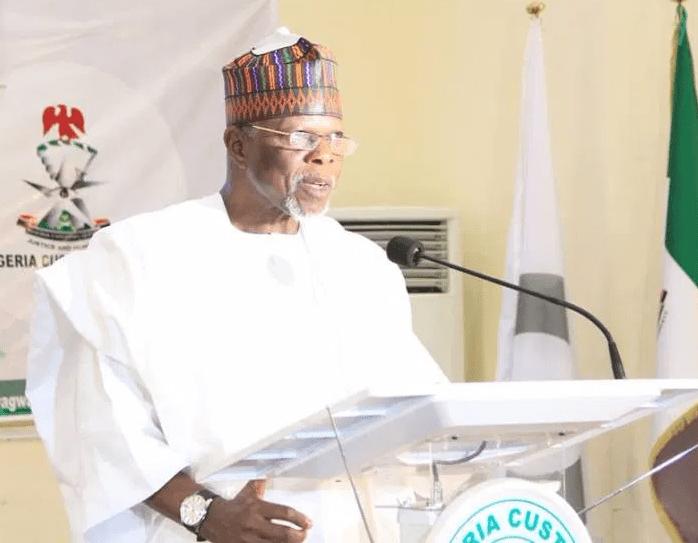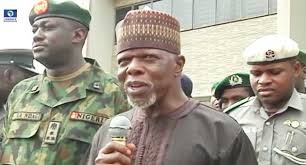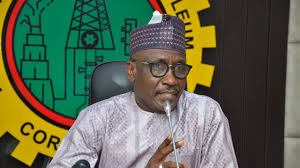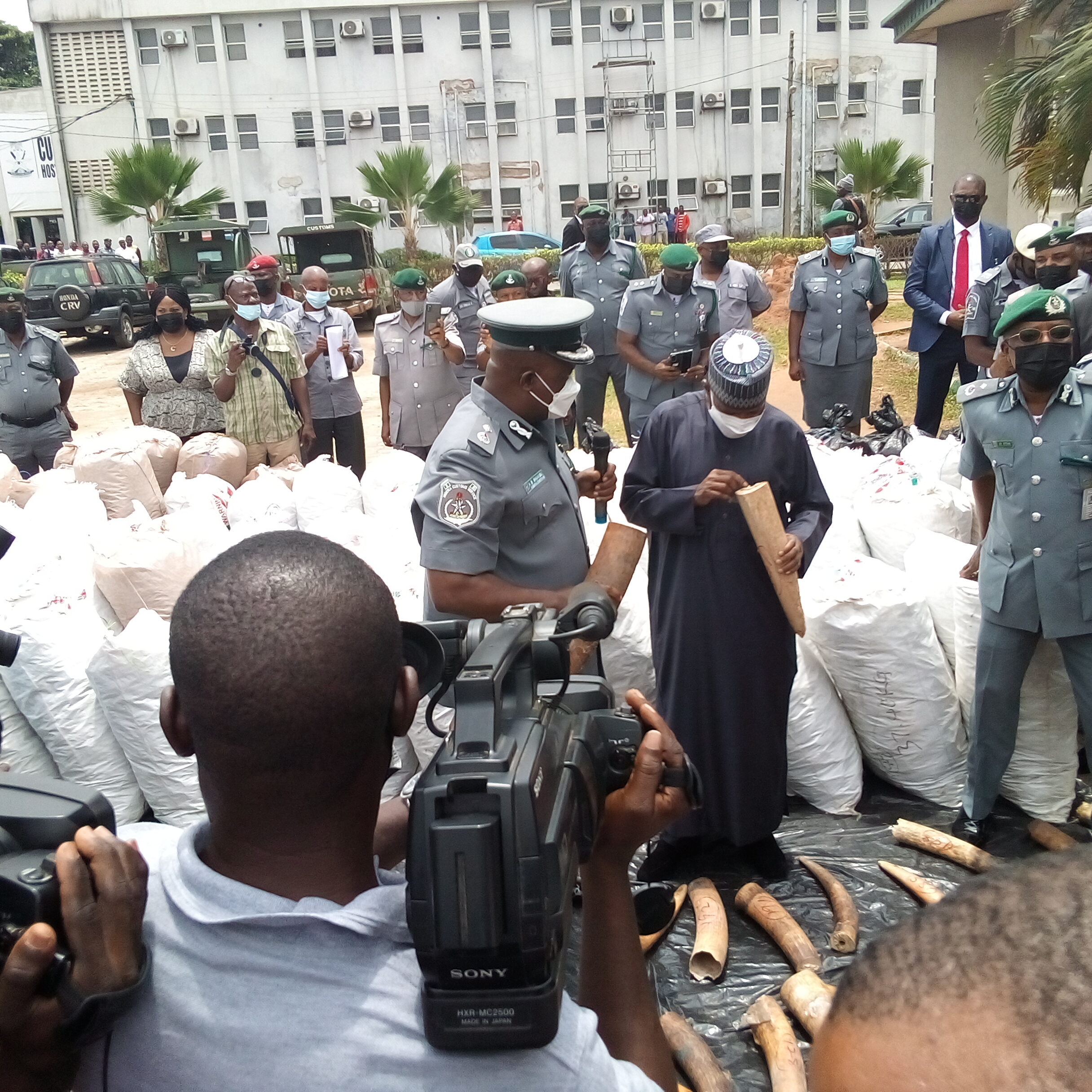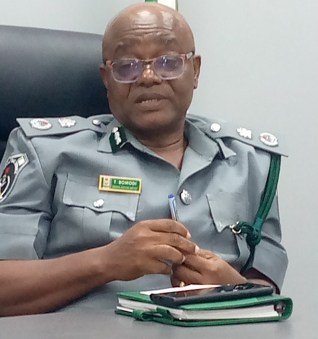Customs Report
Why Minister, Customs CG disagreed publicly over cargo scanners maintenance

By Eguono Odjegba
Although the recent launch of three cargo scanners procured by the Nigeria Customs Service, NCS, was symbolic to some extent, as the physical launch only took place at the Apapa port, and did not cover the other two machines domiciled at Tin Can Island Apapa and Onne ports, respectively
But it was by and large a successful ceremony; except for the official disagreement about the maintenance of the machines. While the Customs Comptroller General, Col. Hameed Ali, retired, expressly declared that the service will be solely responsible for the management and operations of the equipments, the supervising Minister of Finance, Dr Zainab Shamsuna Ahmed, differed and enjoined management to work closely with the contractors who are expected to provide proper maintenance of the machines within the 30months contractual time frame as provided in the agreement.
Speaking on the backdrop of the failure of the maintenance of the service’s scanning machines that went moribound shortly before taking over leadership of the customs service in 2015, Ali said personnel of the service have been fully trained to provide whatsoever maintenance that may be required.
“Unlike previous attempts at managing scanners, our officers have been trained up to level 2 maintenance capability. This ensures that the day to day management of these machines will be proficiently handled by our officers who have been trained and certified by the manufacturers to carry out basic maintenance”, he declared.
Although the minister acknowledged the claim of a ready pool of maintenance officers in-house, she nonetheless directed the customs service to work closely with the contractors to provide ‘proper maintenance of the machines’ in line with the 30 months maintenance time frame provided in the contract agreement.
She explained that the absence of cargo scanners have created identified drawbacks including the resort to physical examination of containers, which she noted is time wasting and inefficient in terms of optimal collection of revenue.
Her words: “It would be recalled that the Federal Government in 2005 contracted the provisions, installations, operations and management of X-Ray Scanners and Computerized Risk Management System for the examination of goods on Build. Own. Operate and Transfer, BOOT, basis, for a period of 7 years to 3 Scanning Service Providers, SSPs, namely: Cotecna Destination Inspection Limited, Societe Generale De Surveillance Limited and Global Scan Systems Limited.
“At the expiration of the contract in December, 2012, it was extended to a period 6 months which ended in June, 2013. Subsequently, the Government entered into a Transition Agreement which terminated on 30 November, 2013 and the NCS commenced the operations of the Scanners. However, upon the exit of the SSPs, some of the scanners became dysfunctional which resulted in physical examination of goods by the NCS.
“This challenge, made the Government to provide the new scanners at the three main Ports, in order to improve the examination of cargoes by the NCS. Furthermore, the current process of physical examination of cargoes is time consuming, causing loss of revenue to the government and cannot be compared with the scanning of cargoes which is carried out in minutes and having the capacity to detect prohibited imports that are concealed in cargoes.
“This process enables more cargoes to be scanned and brings about the desired efficiency and effectiveness in Customs cargoes examinations. I therefore implore the Management of the NCS to collaborate with the Scanners Contractor, to ensure proper maintenance and full utilization of the Scanners within the thirty, 30, months provided in the Contract Agreement, as well as enhanced Capacity Building and Training of 120 NCS scanning officers.”
Reacting to the development, industry watchers and experts blamed the incidence on poor institutional communication and weak adherence to protocol even as they faulted the customs service for failing to ensure that the remarks of the finance minister and the customs helmsman are in sync and leaves no room whatsoever for any material conflict.
According to a retired Customs Assistant Comptroller who can be regarded as cargo scanner expert in view of his training and operations of scanners in different ports in Lagos, noted that the cacophony of views expressed during the ceremony was unwarranted and avoidable.
The retired officer who preferred not to be identified explained that the claim that 120 officers have been trained in the operation of the scanners, does not indicate that all are versed in the maintenance of the machines.
“Personally, l think that the minister and the CGC are saying the same thing except that the language of one is longer than the other. For purposes of interpretation, l agree with you that what they said could mean different things; that the minister may have overruled the simple claim by the CGC that the service do not require the suppliers of the machines to assist with maintenance.
“Look at it this way, did you imagine Ali will give up an important clause of the contract agreement such as the maintenance clause? There is no way he would do that; it is unfortunate that his language suggested some form of distancing from that of the minister.
“During our time, those of us in charge of the operation of scanners were in various division, there are those in image capturing and analysis, those sending reports, and those in technical and maintenance duties. We worked with the shipping inspection agents and service providers to the very last day defined in the contract agreement. The contract agreement is the final authority”, he said.
Also commenting, the Tin Can Port Chapter Chairman of the National Council of Managing Director of Customs Licensed Agents, Mr. Ari Ayuba described the incidence as one of communication gap.
“I think that the misunderstanding is one of communication gap, l think that if the minister’s publicity handlers have requested for a draft speech from the customs service, all this wouldn’t have happened, because they would have simply adopted it even if they chose their language.
“Any ministry and its agency going out for a media event are supposed to interface, you cannot wish away protocols, which in his case appeared to have been poorly managed. I am sure that in the future when the minister and the CGC will go on a similar assignment, this will not happen again.”
The minister and customs boss assured that with the new scanners, cargo scanning process will not only reduce the associated stress with positioning, off loading and taking inventory of containers, but will also store recorded images in a safe format easily accessible by all agencies from the comfort of their offices.
They further noted that the new scanning system will make the auditing of transactions using these scanner as well as checkmate attempts by non compliant traders to cheat the system; or shortchange government.


